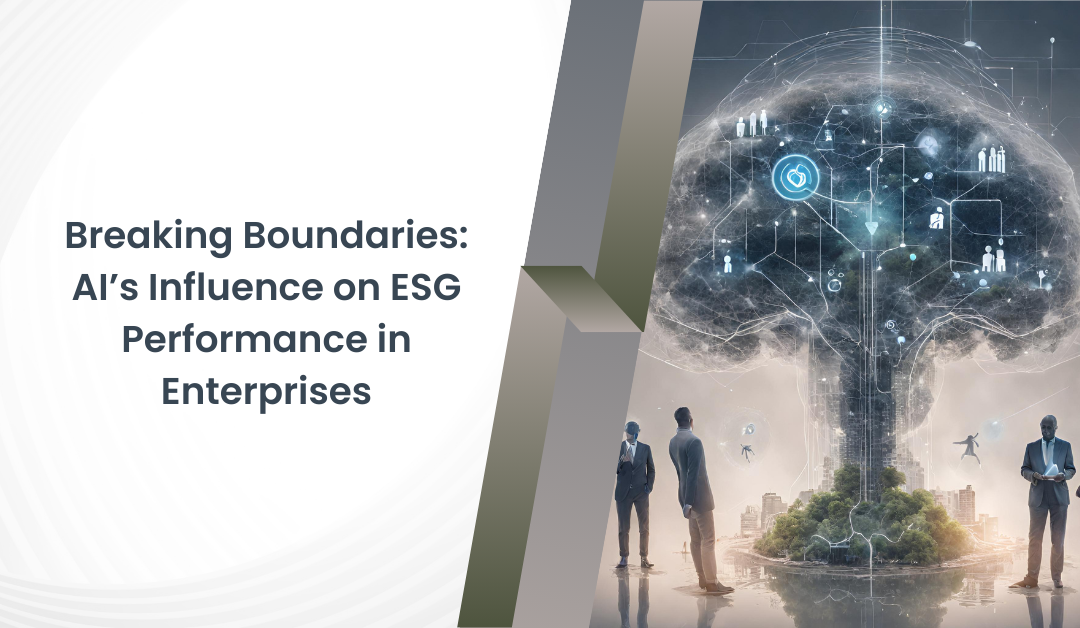In the realm of Environmental, Social, and Governance (ESG) considerations, harnessing technology, particularly Artificial Intelligence (AI), has emerged as a game-changer for enterprises striving to excel in sustainability practices and reporting. AI-powered solutions offer a sophisticated toolkit empowering businesses to manage, analyze, and optimize their ESG-related data effectively.
Efficient Data Management
Enterprises grapple with copious amounts of ESG-related data from various sources. AI streamlines this complexity by automating data collection, assimilation, and analysis. Its ability to process massive datasets swiftly allows for real-time insights, enabling companies to track and monitor ESG metrics accurately.
Predictive Analytics for Proactive Decision-Making
AI’s predictive capabilities equip enterprises with foresight into potential ESG risks and opportunities. By analyzing historical patterns and current trends, AI models predict future scenarios, helping businesses make informed decisions to enhance their ESG performance and mitigate risks.
Enhanced Reporting Accuracy and Transparency
Accurate and transparent reporting is integral to credible ESG disclosures. AI technology ensures data accuracy by identifying inconsistencies and errors, thereby improving the reliability of reported information. This fosters trust among stakeholders and facilitates compliance with evolving ESG standards.
Tailored Solutions for Diverse ESG Needs
ESG issues span a wide spectrum, varying across industries and enterprises. AI-driven solutions like ours at ESGTech.ai offer customization and adaptability to meet diverse ESG needs. Whether it’s carbon footprint tracking, social impact assessment, or governance evaluations, AI technology can be tailored to address specific requirements.
Identifying Actionable Insights
AI not only processes data but also extracts actionable insights crucial for optimizing ESG performance. It identifies trends, potential areas for improvement, and strategic opportunities, empowering enterprises to implement targeted initiatives that drive positive environmental, social, and governance outcomes.
Risk Mitigation and Resilience Building
ESG risks, including regulatory changes, supply chain disruptions, or reputational challenges, pose threats to businesses. AI’s ability to continuously monitor and analyze data helps in identifying and mitigating such risks proactively, enhancing an enterprise’s resilience in the face of ESG-related challenges.
Long-term Value Creation
AI-driven ESG strategies aren’t just about compliance; they’re about value creation. By integrating AI technology into their ESG frameworks, enterprises lay the foundation for sustainable growth, improved operational efficiency, cost savings, and increased competitiveness.
Conclusion
In today’s rapidly evolving business landscape, AI is indispensable for enterprises committed to elevating their ESG performance. Technology like AI, especially when harnessed through platforms like ESGTech.ai, is not merely a tool but a catalyst for driving meaningful change, fostering sustainability, and navigating the complexities of ESG management with agility and precision.

